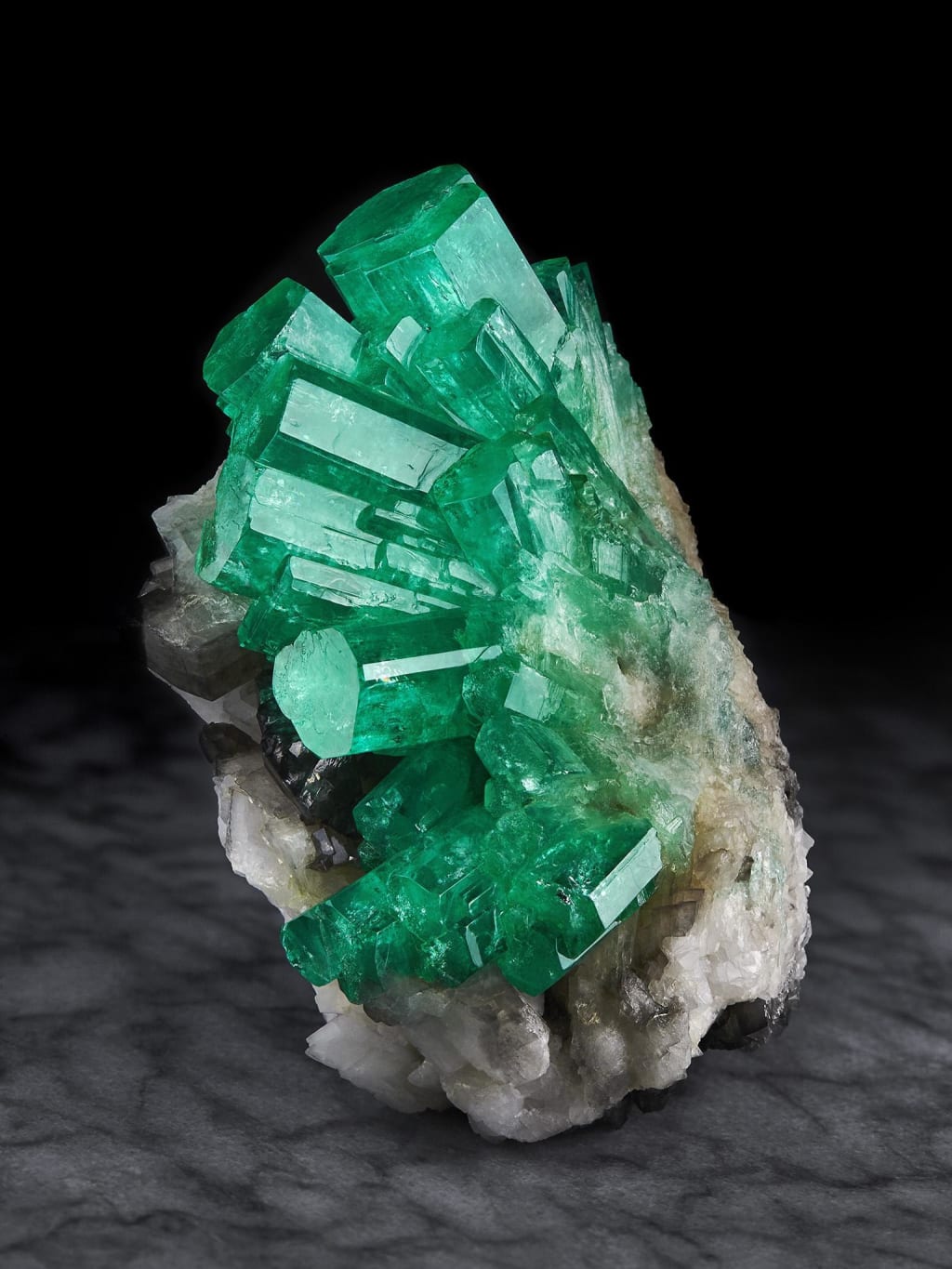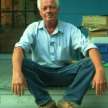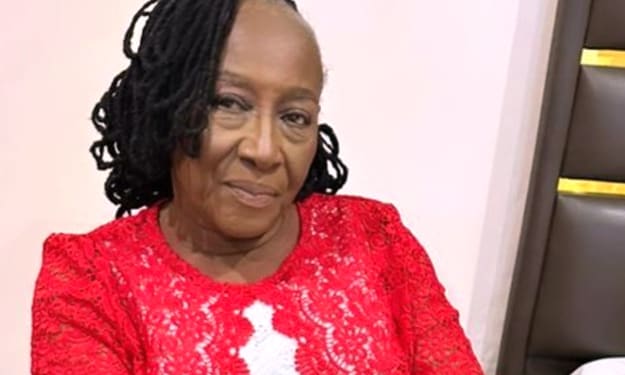
Emerald is my name, and I keep the watch for Sector Seven here in Richmond. Three days on, four days off, from Horse Creek in the north to Shockoe Creek in the south, all the way out to the hinterlands on the Chickahominy River. Easy as pie; a piece of cake. I could walk it off in my sleep without stumbling, patrol it in a dreamy daze.
I am fifteen, the same age our prophet was when she warned us, when we did nothing, when she sailed across the Atlantic, when Pig Eye mocked her.
My momma’s name was Ruby (she’s dead now). Here’s what she used to say, “We might not be hard as diamonds, but we more precious.” True. I miss Ruby Dandridge every day, but she thumps a deep beat in my heart, so she’s always with me.
Pig Eye pushed it to the brink. Hogs will eat anything, even children—human and their own. Pig Eye was no different. He grunted and snorted and gorged at the trough, along with his fellow pig-men, until there wasn’t a drop of slop left.
I was five, just a week shy of my sixth birthday, when everything changed. It came slow at first, then hit with a wallop, what some called the Beginning of the End Times. All power grids failed at the same time. Everywhere. And they were never restored.
A five-year-old stores certain memories away like preserves, capturing the essence of the event, the taste of it, like strawberries or peaches.
That night, ten years ago on June 10, as we all slept, our house went dead. My momma shook me awake, and whispered in my ear, “Emerald, honey, get on up. Right now, Butterbean.” She held her cellphone in her palm, kept pressing the side with her thumb, but the screen didn’t light up. I followed her to the kitchen where my daddy rummaged through a drawer beneath dish towels and placemats. He retrieved four flashlights. None of them would come on. He took out the old batteries and replaced them with brand new batteries. Still, no light. “Something ain’t right here,” he said, turning to my momma. “I just bought . . .”
We heard glass shatter in the front room. A pop, a crunch, and, at last, a tinkle. And then another. My daddy ran up the hall to the front door. A second later he burst back into the kitchen, grabbed the Coleman lantern from the pantry in one hand, scooped me up in the other, and then sprinted into the dining room. “It’s those goddamned Flag Boys,” he said to my mother who was right at his heels. “Hundreds of them out there. Every last one of them with a gun strapped to his chest.”
He set me down in front of the fireplace, and scuttled around the room, pulling the ancient oak pocket doors—which led to the den, living room and hallway—from their hiding places in the door frames. They grated on their tracks as he tugged on them, doors that had not been shut for fifty years. He lit the lantern, and his fingers crept along the crown molding of the mirrored mantelpiece until he found a small skeleton key there that weighed almost nothing. And then he moved around the room and locked all three doors with a satisfying click. In the sideboard behind the dining room table, he unlocked a small hinged door where liquor might be kept. He drew forth a gun, something I had never seen. It was, I would later learn, a .38 Glock; the same one now strapped to my thigh.
We remained huddled in that room until daylight, and all through the night we could hear people screaming and whooping, and the breaking of glass and the pop-pop-pop of gunfire. Well after sunrise, my daddy unlocked the door to the living room and made his way back to the kitchen. He returned with two bags of food and a cooler.
For the next two days and nights, we stayed locked in that room. When we used the bathroom, my daddy stood by the door with his gun drawn, because at night we could heard the angry bands of white men outside, and sometimes a few of them tramped up and down the hallway in our house. The second night, when my parents thought I was asleep, they talked to each other in whispers.
“This is for Butterbean,” my daddy said, and I could imagine him handing something over to my mother, but I did not turn to look and see because that would have given me away. “I made it for her birthday.”
“It’s beautiful,” momma said. “She gonna love it. There’s no better jeweler in the whole of Richmond than my Jamal.”
On the third day, my daddy went out to scavenge for food. My momma read to me from one of my favorite books at the time, “I Am Enough”. I loved the lilt of her voice, and as my eyes began to close there was a loud thumping at the pocket door to the hall, and then the wood began to splinter. Momma’s index finger crossed her lips and she indicated the fireplace. She brushed the brass screen aside and said in the lowest of voices, “Just climb in there and stay put. Not a sound, no matter what happens.” After I squeezed into the hearth with my back to the cool bricks, she pulled the screen back into place.
There were at least five men in the room; I could tell by their voices. I heard them yelling at my mother. They said horrible things, and I heard her pleading and them laughing. And then there was a cracking noise, like the sound the door made when the men battered it down, but this noise was much fainter, and right after it there was quiet.
“Grab those rings and that necklace and those bracelets,” one voice said. “Just rip em off. We ain’t got no time.”
I peeked through the corner of the brass screen. The man who was talking was bearded and fat with long hair and camouflage. Momma’s face was turned away from me, but I could see this man pry something from her clenched fist. As he was shoving it in his pocket, my daddy jumped into the room with two guns drawn. He shot the man who was bent over my momma. He shot him right in the middle of his forehead where a dark red third eye appeared. Daddy fired two more rounds, but four guns were already trained on him, and they released their salvos, and my daddy dropped to the floor.
I wanted to squeal; I wanted to scream. Instead, I just froze, and everything went black.
Early the next morning, I crawled out of the fireplace. My momma and daddy were on the floor just inches away from one another as if they were sleeping. I laid down between them, hugged one and then the other. I kissed them on their cheeks. I wept. I ventured into my bedroom, grabbed a few changes of clothing, some slippers and a few of my toys, and then, as an afterthought, I went back and retrieved my father’s gun, which was near his feet. It was sticky with blood.
Dorthea Wright, the lady who ran the library just up the street from our house in Little Italy, let me camp out among the books. I would reshelve the books for her at night, and she would bring me food and treats the next morning. She always talked to me and held me in her lap, and taught me new words and could answer any question I had. In the afternoons I was free to wander in the woods near Horse Creek, and I got to know that whole stretch like my old back yard. Evenings, I read every book I could get my hands on, and I read about everything there was.
At ten years old I joined the One Tribe. These were the men, women, and a few teenagers who helped keep Sector Seven safe. All along the Chickahominy we fortified defenses on top of redoubts built more than a century and a half before during the Civil War. We planted Virginia creeper and trumpet vines to secure our breastworks. I worked alongside grown men and women. An old man named Mr. Clovis trained me to use my daddy’s gun, and when I was just twelve years old I was given an area to patrol. I was known for having the eyes of an eagle and the ears of an owl. Nothing ever got by me, not even a shrew or a field mouse.
For the past couple weeks now, I have seen this boy on the other side of the Chickahominy. He watches my every move, but I can always see him, hiding behind trees or bushes, or hunkered low to the ground behind the marsh grasses.
This morning, just as I got to the high ground where Horse Creek runs into the Chickahominy, I saw him wading across the water. He moved snakelike up our shore and hid in a small hollow draped in honeysuckle. I watched as he unscrewed the lid of his water a bottle. He drank deep. I waited until he looked comfortable.
That’s when I came up on him, my gun drawn.
“What you doing here?” I yelled.
“I wanted to see you,” he said. “I brung you something.”
“Why you been stalking me?” I asked.
“I like how you look,” he said. “I brung you something.”
And then he pulled a tiny gold locket out of his pocket that hung from a chain as fine as his blonde hair. He handed it to me.
I unclasped the locket, and when I looked down, I caught my breath. My momma and daddy stared up at me from twin hearts, their eyes the size of the periods on this page. This was some kind of sign, and I knew there had to be more. With the nail of my pinky finger, I peeled back the tiny photographs, and behind each one was a small scroll of paper that I unraveled, flattening them out on my knee.
I held that gun to his face, this boy no older than me, this white boy from the hinterlands, this boy who had handed me the locket.
“Where’d you get this?” I asked him.
He was scared. Who wouldn’t be? I had the muzzle three inches from his forehead just above his nose.
“I found it in my daddy’s pocket,” he stammered. “Right after he was killt.”
My hand began to tremble, but I held the gun with my index finger tight on the trigger.
I looked down at the flattened scrolls on my knee and read the words my parents had penned a decade before.
“No matter what goes on around you, protect your small sacred space,” the one under my daddy’s picture read.
And then I read the other. “Love is all we have, and all we will ever have.”
I held that gun for what seemed hours, and when I finally lowered it, the boy was lying face down on the ground in front of me. I reached out to touch his shoulder, but I kept my grip on the gun.
About the Creator
Charles McGuigan
Charles McGuigan lives and writes in Richmond, Virginia.






Comments
There are no comments for this story
Be the first to respond and start the conversation.